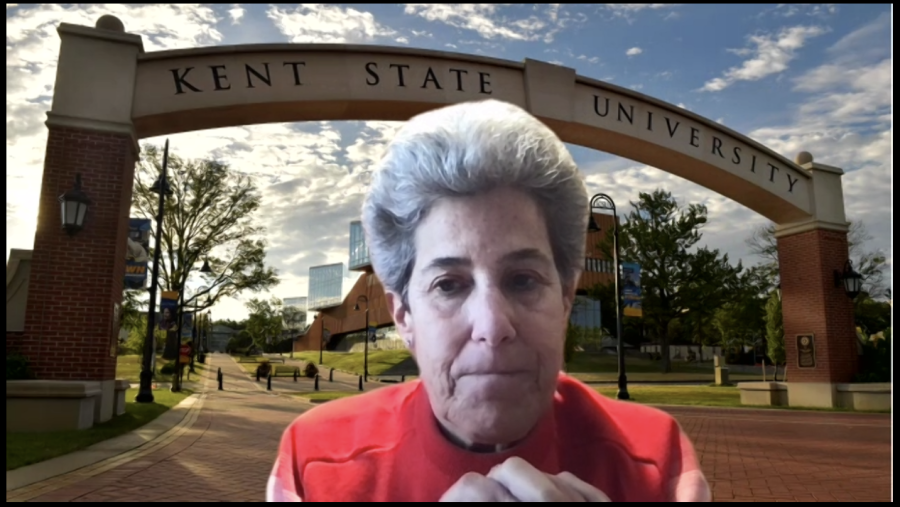Brazil program adapts virtually, collaborations with Brazilian universities continue
March 27, 2021
Sending Kent State speech pathology majors to Brazil to work with children diagnosed with autism has been a yearly tradition until recent years when the pandemic cancelled this past year’s trip and put the program on hold.
The program would send students with Lisa Audet, head of the program, to the University of Sao Paulo in Brazil. There, the students would gain hands-on experience working with children throughout their diagnosis and moving forward.
Despite not being able to send students abroad this year, collaborations have come from the in-person programs that continue to meet virtually.
“One [collaboration] is that I was able to serve on a master’s thesis project for a student in speech pathology at the University of Sao Paulo,” Audet said. “That was exciting to serve on an international thesis committee. Another is that I was invited to present at their National Congress of speech language pathologists and audiologists.”
Audet has several other collaborators from Kent State in the speech pathology department who joined her at these conferences. Ellen Glickman, director of the School of Health Sciences, was one of Audet’s collaborators and said it was a shared experience.
“At Mackenzie University, we met with individuals in our area of interest and attempted to collaborate, to do research and teach,” Glickman said.
Glickman said they had a common goal in what they wanted to get out of the collaboration.
“A goal that we realized that, you know, we wanted to enrich ourselves and enrich them,” Glickman said. “It was a beautiful cross pollination amongst all of us.”
Fernanda Dreux is a professor at the University of Sao Paulo and hosted the Kent State visitors in years past when they were able to visit Brazil.
“[The Kent State students] came to the campus where I work and they participated in some classes,” Dreux said. “The American students also observed the therapy my students were provided. … We had by that time about 80 children with autism that were receiving language therapy, so the American girls [students] could watch the therapy.”
In addition to classes and in-person therapy, the visiting students also got to view the process of diagnosing the children.
“They also visited our primary health care center where the children are firstly assessed, and sometimes they receive the diagnosis hypotheses of autism,” Dreux said.
While in-person collaborations have been on standby, Audet and her colleagues hope to return to normalcy soon.
“The relationships that my students made with the students from Brazil have lasted for over three years,” Audet said. “They are still in touch with each other, which I think the ultimate growth is to have those kinds of colleagues around the world is wonderful.”
Kaitlyn Finchler covers administration and enrollment. Contact her at [email protected].

























